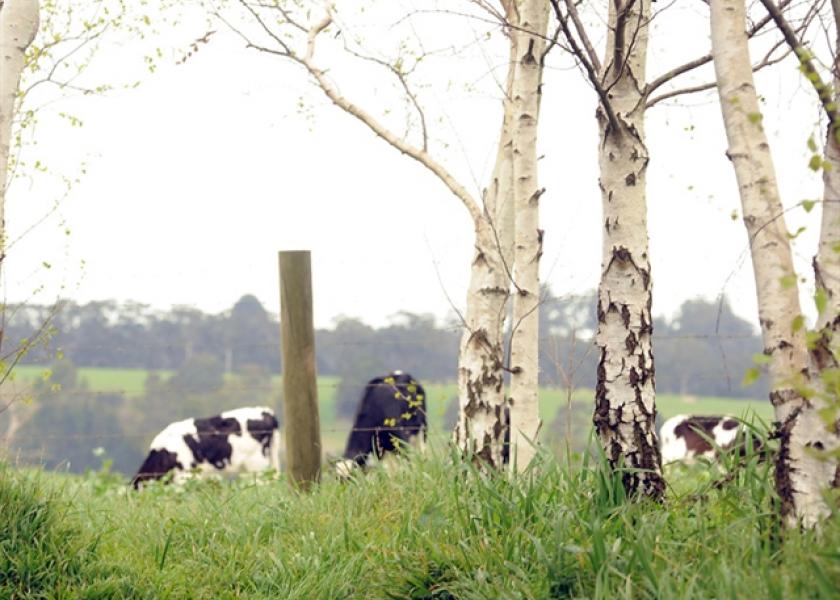Fonterra Cuts Milk Payout Forecast as Global Prices Slump

Fonterra Cooperative Group Ltd., the world’s biggest dairy exporter, cut the amount it will pay New Zealand farmers for milk to the lowest in at least 10 years as weak demand and oversupply depress global prices.
Fonterra will pay farmers NZ$3.85 ($2.53) a kilogram of milk solids in the season ending May 31, 2016, the Auckland- based company said Friday in a statement. The payout is the lowest since at least 2006 and 27 percent less than Fonterra’s May 28 prediction of NZ$5.25 a kilogram.
Dairy prices slumped to a 12-year low at this week’s GlobalDairyTrade auction amid a global glut, hurting New Zealand farmer incomes and threatening to curb economic growth in the nation that relies on dairy for a quarter of its export earnings. Central bank Governor Graeme Wheeler has cut interest rates twice this year and signaled further easing.
“Today’s announcement implies NZ$3.3 billion less revenue than normal for Fonterra’s suppliers,” said Michael Gordon, senior economist at Westpac Banking Corp. in Auckland.
Stock in Fonterra Shareholders’ Fund, which tracks the company’s dividend, jumped 5.2 percent -- the most in more than two years -- to NZ$4.90 as of the close. The kiwi dollar gained after the statement. It bought 65.64 U.S. cents at 5:40 p.m. in Wellington from 65.45 cents immediately before the release.
Economists from New Zealand’s four biggest banks expected a forecast of NZ$3.50 to NZ$4 after whole milk powder prices fell to $1,590 a metric ton at the Aug. 4 auction. That’s $800 lower than when Fonterra made its previous payout forecast.
Prices Unsustainable
“Prices are unsustainably low and we are seeing them beginning to impact production levels globally,” Chairman John Wilson said in the statement. “Prices will recover over the course of the season. However, it will be a tough season for our farmers.”
Constraints on demand from larger dairy buyers because of the economic slowdown in China and an import ban in Russia are weighing on prices. At the same time milk supply continues to increase in Europe and the U.S.
Fonterra expects milk collection from its New Zealand suppliers will fall 2 percent in the 2015-16 season as farmers curb costs by reducing stocking rates and supplementary feeding.
The company has reviewed its spending plans for the next two years, Chief Executive Officer Theo Spierings said in the statement.
“We are now targeting a spend of NZ$500 million to NZ$600 million less for 2016 financial year compared to financial year 2015,” Spierings said in the statement.
Support Payment
Fonterra said 2015-16 earnings per share will be 40 to 50 New Zealand cents. The company has a policy paying as much as three quarters of its adjusted net profit after tax as dividends.
It will also make an additional 50 New Zealand cents a share available to farmers who want it this season. The extra amount is repayable to the company without interest for two years once the milk payment returns to more than NZ$6 a kilogram, it said.
The support payment will cost NZ$430 million this half depending on take-up by farmers, and will be funded by one-off savings within the company, it said.
The board will review the program in December based on market conditions and progress on cost cutting.
“Most farmers are facing a payout lower than their cost of production,” Duncan Coull, chairman of the Fonterra Shareholders’ Council, which represents farmers, said in a statement. “Fonterra’s performance needs to improve.”







